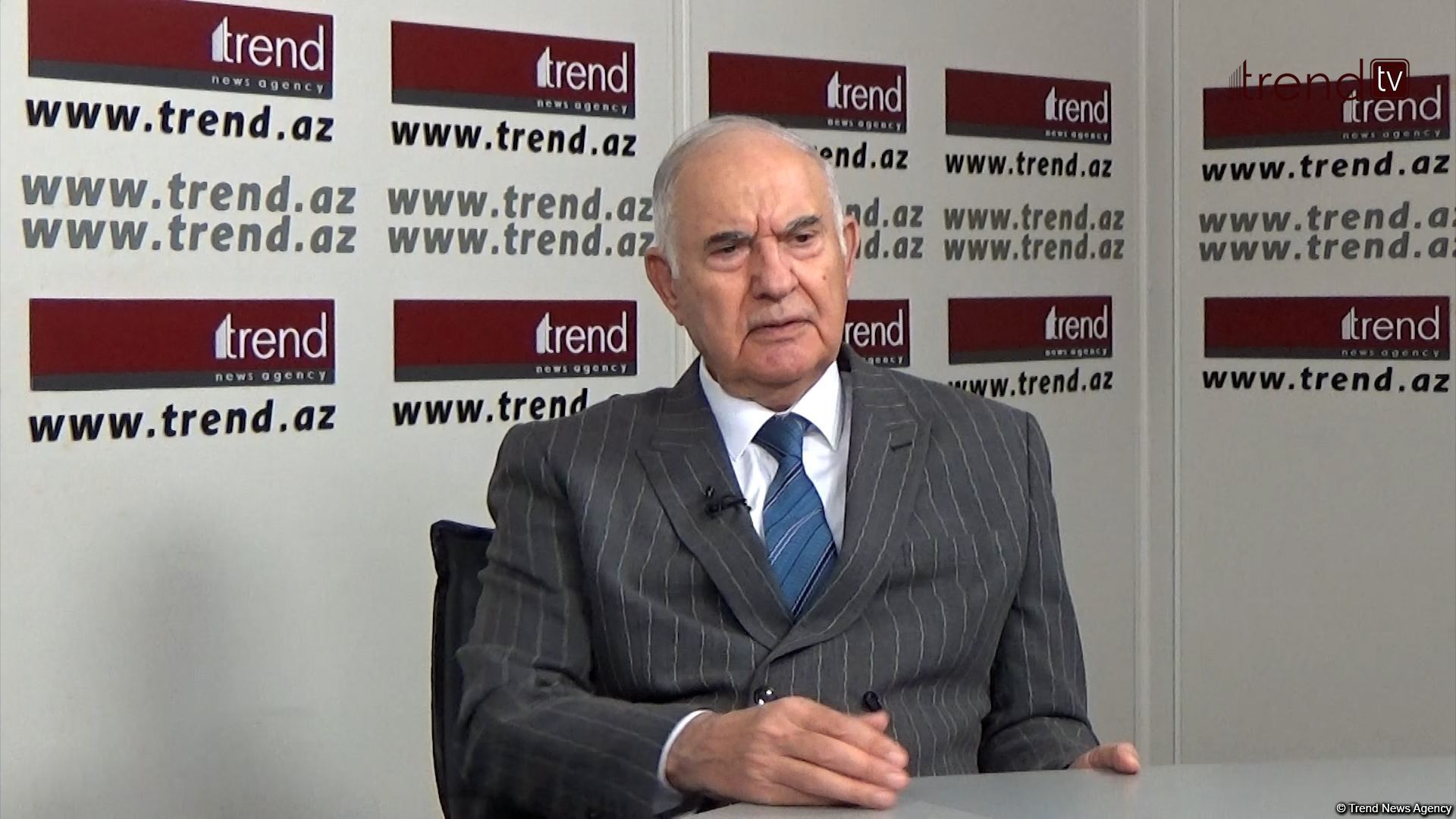BAKU, Azerbaijan, November 27. The holding of the 83rd meeting of the Council for Rail Transport of the Commonwealth of Independent States (CIS) in Baku once again demonstrated Azerbaijan’s growing role in global transport architecture, political analyst Azer Garayev told Trend.
Garayev noted that in recent years, Baku has turned into the hub of the wheel, where new multimodal routes are weaving together across the East–West, North–South, and Caspian regions.
“Azerbaijan is not simply participating in international transport projects; it is actively shaping their direction and priorities. Plans are already underway to boost cargo turnover along the North-South Transport Corridor to 5 million tons by January 1, 2028, and later to 15 million tons. These targets are more than ambitious declarations; they reflect years of strategic planning and a deliberate, disciplined approach to infrastructure development.
Last year’s agreement between Azerbaijan and Russia on the expansion of transit transportation laid both the legal and technical foundation for turning the North-South Corridor into a genuinely competitive global route. Ongoing railway modernization, the introduction of advanced technologies, coordinated tariff policies, and the digital transformation of logistics processes all contribute to strengthening Azerbaijan’s influence and leadership within the region,” he said.
Garayev underscored the significance of the Horadiz-Aghband railway line in this grand scheme, painting it as a venture that will seamlessly weave Eastern Zangezur into the national transport tapestry and bolster Azerbaijan’s clout in the regional transport and communication landscape.
“The annual throughput capacity of this line is planned at 15 million tons, and construction is expected to reach the Armenian border by 2026. This project is far more than an infrastructure rebuild; it marks the full integration of East Zangezur into Azerbaijan’s national transport system and further reinforces the country’s decisive role in shaping the region’s transport and communication architecture.
At the meeting, special attention was given to the transport potential of the CIS space. Last year, total freight turnover on the railways of Council member countries reached 3 trillion ton-kilometers, a figure that is 30 percent higher than that of the United States' first-class railways and eight times that of the European Union. These numbers reflect not only deepening regional connectivity but also the rising global importance of the Eurasian railway network. Within this system, Azerbaijan stands as one of its most critical transit hubs,” he said.
Garayev pointed out that the Baku-Tbilisi-Kars line, the Middle Corridor, and the North-South projects have really put Azerbaijan on the map in the world of transport, making its position stronger than ever.
“One of the most important outcomes of the meeting was the trilateral Memorandum of Understanding signed between the railway authorities of Azerbaijan, Russia, and Iran. The document provides for harmonized tariff approaches, a unified complex tariff, regular operation of block trains, and improved transport procedures. These measures create strong potential for transforming the North-South route into a faster, more transparent, and economically competitive logistics chain. A unified tariff policy, particularly along the Iran-Azerbaijan-Russia axis, will deepen regional integration and open strategic opportunities for Azerbaijan. Russia seeks to expand its southern routes, while Iran is increasing its engagement with Eurasian transport networks. In this context, the fact that all roads pass through Azerbaijan gives our country both economic benefits and geopolitical leverage,” he said.
The political scientist also stressed the importance of transparency and synchronization in logistics processes.
“In today’s world, transport corridors compete not only in distance and cost but also in speed, digitalization, and reliability. Azerbaijan has long been a regional leader in implementing innovations such as digital border crossings, cargo tracking, and automated procedures. The meeting in Baku once again demonstrated that Azerbaijan is at the heart of Eurasia’s transport transformation. Major work on the Baku-Tbilisi-Kars line, expansion of the Middle Corridor, modernization of East-West infrastructure, and advancement of the North-South route all reinforce our country’s role as a strategic bridge linking Europe, Central Asia, Russia, Iran, and Türkiye.
The documents signed and the statements delivered show that Azerbaijan is not merely adapting to changes in global logistics. It is directly shaping them. Competition between regional corridors is intensifying, yet Azerbaijan, leveraging its geography, stability, and purposeful transport strategy, is confidently positioning itself as Eurasia’s main transport hub. The 83rd meeting held in Baku marked yet another important milestone in this process,” Garayev added.
Stay up-to-date with more news on Trend News Agency's WhatsApp channel







